Chinese People Believe Western People Are Misunderstanding About Their Chinese Social Credit System, This Is Their View Of The System
Karamchand Rameshwar - Mar 29, 2019
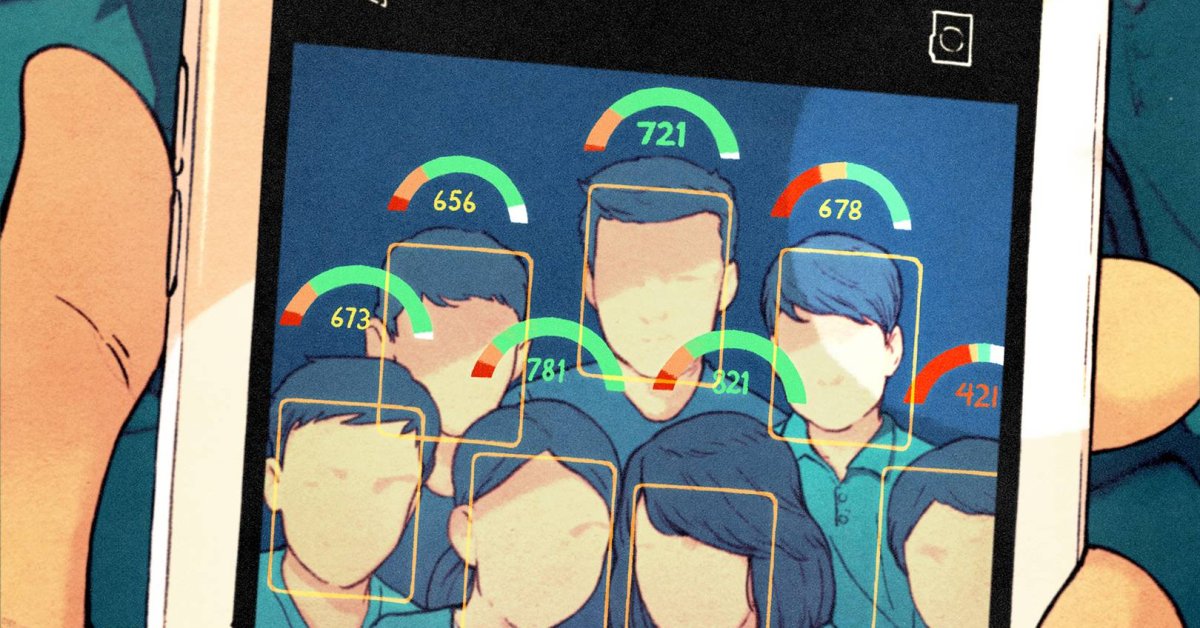
They believe the system is bringing them more benefits than harms.
- Mumbai 2020 Power Outage Might Be A China's Cyberattack, India Official Claims
- TikTok China Banned Users From Making Videos To Show Off Wealth
- Entrepreneur Spent 1 Year Building 600-Square-Meter Floating Mansion
"Big brother is watching us"
This line is often used by the Western press to talk about the social credit system (SCS) of China.
It is also likened to the overcast sci-fi series "Black Mirror." However, the attitude of the world media seems to be not really fair, when describing SCS as "human imprisonment system" or "more miserable than imprisonment".
Meanwhile, Chinese netizens, who live in SCS, argue that it is necessary to promote a harmonious society and they are focusing more on the privileges it brings.

At the end of 2017, Jeremy Daum, a researcher at China Law Translate Publishing House, gave an in-depth analysis, pointing out the incorrect points of international media on China’s social credit systems, saying: Most people Foreign are confusing Sesame Credit (also known as Zhima Credit) and social credit.
China has two main social credit systems
In China, there are quite a few terms related to social credit and perhaps this makes the state's SCS system confused with the private one.
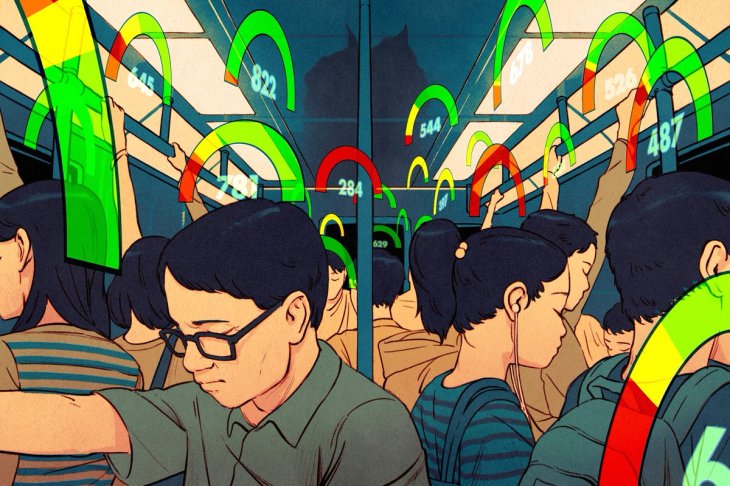
This is clearly stated in the article entitled "China's social credit system is not like what you think it is" by Ed Sander.
In it, the biggest misconception is that there is only one social credit system in China. In fact, there are two separate systems, operating independently: the commercial credit system (such as Sesame Credit) and the social credit system (SCS) promised by the Chinese government across the country by 2020.
Sesame Credit (private)
The system that mostly makes the foreign media debate is Sesame Credit, developed by Alibaba Finance Company. Sesame Credit has more than 520 million users in 2017.
Sesame Credit: Less than 385 points counted as "bad credit", from 731 points or more are "good"
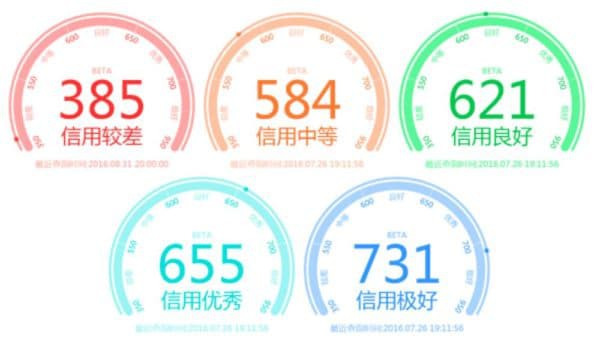
Sesame Credit was launched in 2015. As part of Alibaba's ecosystem, the system inherits a huge database from e-commerce sites to financial products (Taobao, Tianmao, Alipay ...), from which it aggregates and gives personal credit scores through the user's payment history and online behavior.
In fact, no one has the right to force users to join Sesame Credit. Chinese netizens compared this system to the loyalty program, if you want to enjoy the benefits, then join the system.
Since 2015, Sesame Credit has also partnered with the famous online dating service company Baihe.com for users to link their profiles to social credit points, as a basis for determining the credibility among those who want to find partners.
Social Credit System (Chinese government)
The Chinese social credit system (SCS) is currently not a national system - expected to be deployed nationwide by 2020 - but it is being tested in many different regions and cities in the country.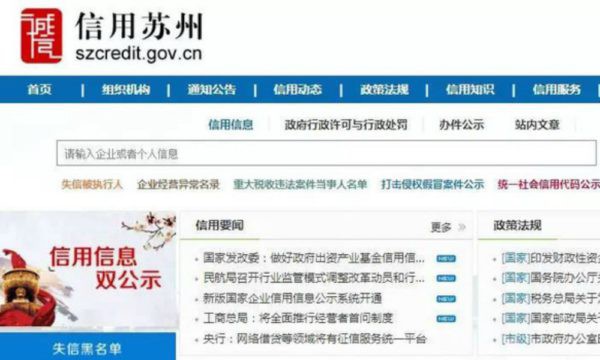
Official social credit website of Suzhou city
In the article published in 2017, Daum describes it as a "policy" or "ideology in data usage". He explained it was: "China's efforts to improve economic security and public safety by increasing integrity and mutual trust in society."
Social credit will fundamentally focus on accumulating and integrating information, creating reliable behavioral incentives and punishing individuals with negative behaviors. "
Earlier this year, China announced 12 cities that it has been testing the SCS, including Hangzhou, Nanjing, Xiamen, Chengdu, Suzhou, Suqian, Huizhou, Wenzhou, Weihai, Weifang, Yiwu, and Rongcheng.
Rongcheng of Shandong Province received positive feedback. Specifically, residents in Vinh Thanh accepted SCS pilot and expressed satisfaction when many social aspects improved.
To be more specific, Chinese authorities clearly divide the penalty frame and the reward: Defaming other people on the internet, mistreating relatives will affect the social credit of individuals/families. On the contrary, if supporting parents, working well for the community will get a better ranking. In Rongcheng, exemplary citizens are praised and named on the electronic boards in the city center.
Social credit system in China: Not as bad as what Western media see
SCS and Sesame Credit are two of the hottest topics, with many prejudices on Facebook or Twitter. On Sina Weibo, China's largest social network, people show the opposite.
For example, Sesame Credit is closely related to additional features in a shared economy in China. Sesame Credit's official Weibo site has over 240,000 followers. Initially, those with high credit scores will be able to rent a Hello Bike for free.
Recently, people with a Sesame credit score of over 700 can test the brand-new Ford Explorer continuously for 3 days without paying any money.


Having a high "ranking" in the Sesame Credit system offers many other benefits.
In some places such as Shanghai, Hangzhou or Wenzhou, people with a Sesame Credit score of 500-600 or more, can go to the library to borrow free materials or go to the self-service counter to get a book.
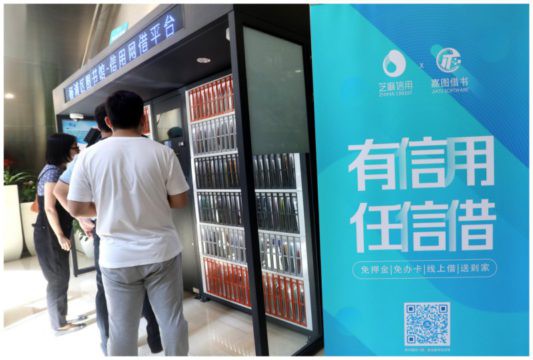
At Zhejiang University Hospital, patients with more than 650 points of Sesame Credit can enjoy privileges such as a doctor's preference, wheelchair rental, and free hospital beds.
In Shen Chau and other cities, those with a score of over 650 can rent a car without a deposit. There are countless examples of how this system makes the lives of "decent people" easier and more convenient.
If, in the past, Chinese people were mostly chatting about shocking news or memes on the internet, so far, discussing how to raise social credit scores is a trend. In short, if you live nicely and follow the law, Chinese people will gain more benefits than harms.
Punishment for those who are blacklisted
Compared to Sesame Credit, SCS is not getting much attention. However, every time people bring it to debate, it seems that they are more focused on the punishments than rewards.
In early May of this year, a young man from Shanxi was named in the social credit blacklist (blacklist of unreliable people), banned from traveling by train for 180 days - All came from jumping over the ticket barrier at a train station.
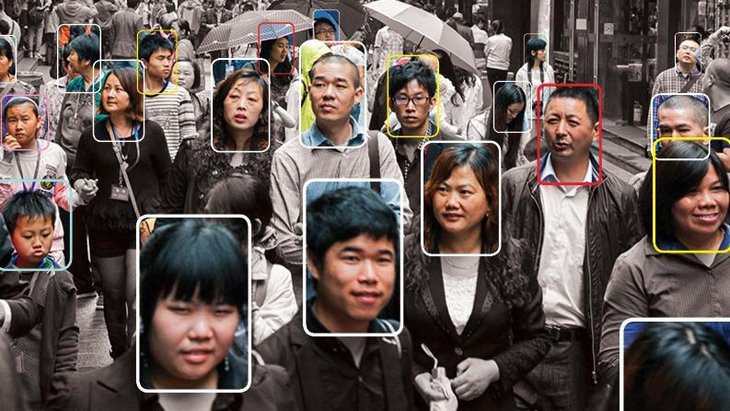
While Western media say living like that is "more miserable than imprisonment," many Weibo users say: People who don't know how to abide by the rules should be banned from traveling indefinitely.
On May 22, Guangdong City announced the implementation of a special blacklist.
Anyone who undermines the means of shared services will be banned from using it and lowered their own and even credit points of family members.
In Shenzhen, the wrong pedestrian will be detected by the facial recognition system and minus credit points in the future. Each city / region will have its own ranking scale, not the same across China.
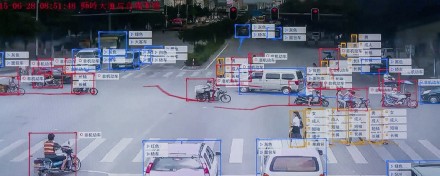
Although the international media is frightening by SCS and Sesame Credit, a large part of Chinese people still believe that this way will bring positive effects to society. Karmic retribution often comes late, but in the near future in China, karmic retribution will come as soon as someone does something wrong.
Featured Stories

Features - Jul 01, 2025
What Are The Fastest Passenger Vehicles Ever Created?

Features - Jun 25, 2025
Japan Hydrogen Breakthrough: Scientists Crack the Clean Energy Code with...

ICT News - Jun 25, 2025
AI Intimidation Tactics: CEOs Turn Flawed Technology Into Employee Fear Machine

Review - Jun 25, 2025
Windows 11 Problems: Is Microsoft's "Best" OS Actually Getting Worse?

Features - Jun 22, 2025
Telegram Founder Pavel Durov Plans to Split $14 Billion Fortune Among 106 Children

ICT News - Jun 22, 2025
Neuralink Telepathy Chip Enables Quadriplegic Rob Greiner to Control Games with...

Features - Jun 21, 2025
This Over $100 Bottle Has Nothing But Fresh Air Inside

Features - Jun 18, 2025
Best Mobile VPN Apps for Gaming 2025: Complete Guide

Features - Jun 18, 2025
A Math Formula Tells Us How Long Everything Will Live

Features - Jun 16, 2025
Comments
Sort by Newest | Popular